OK, I said I tended to make slow progress but here are some photos as requested by Daz (that'll teach you!).
Just to recap, the walls are 18mm wbp ply on a close studded 4x2 frame and screwed at about 10-inch centres (closer around the edges). I used a Mapei waterproofing kit and applied three coats. I then fixed the tiles with Mapei Keraflex as recommended by Mapei's technical helpline.
I cut the holes using 365drills diamond holesaws. A bit expensive for a DIYer as I doubt I'll ever use them very much again, but they certainly made an easy and neat job of the holes.
I hope the pros don't fall about laughing too much . . . .
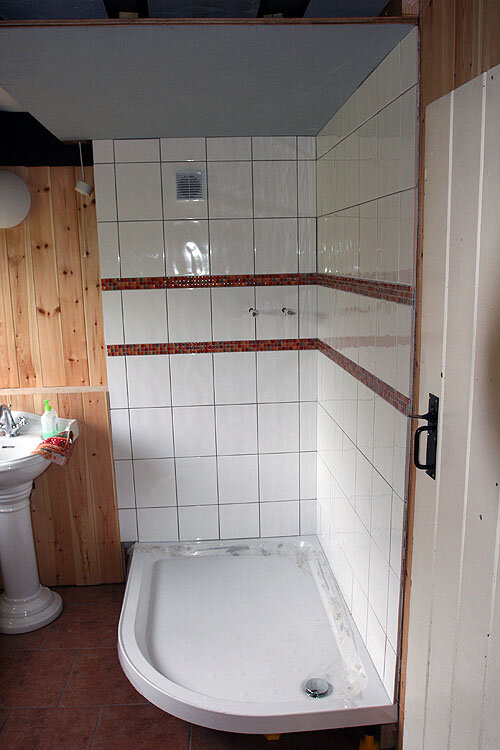
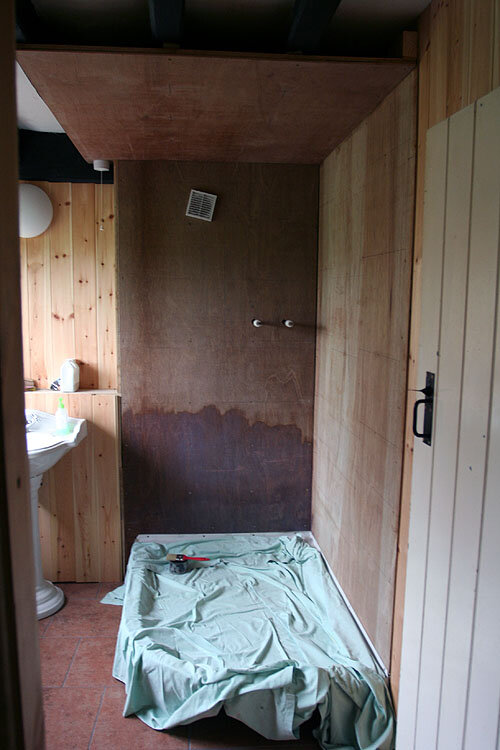
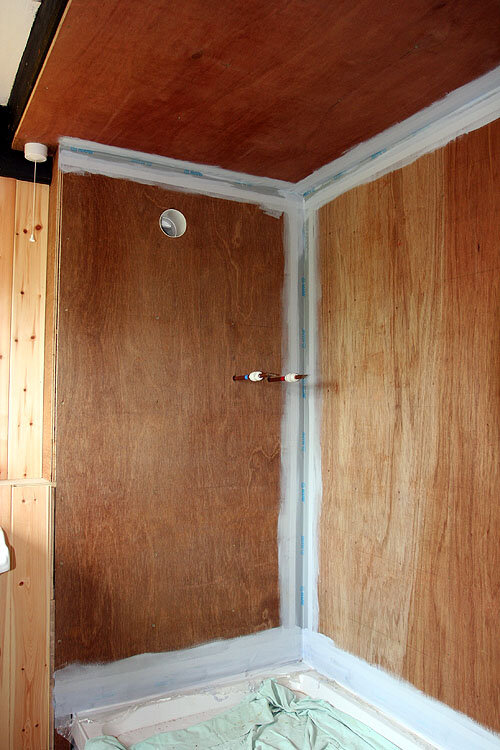
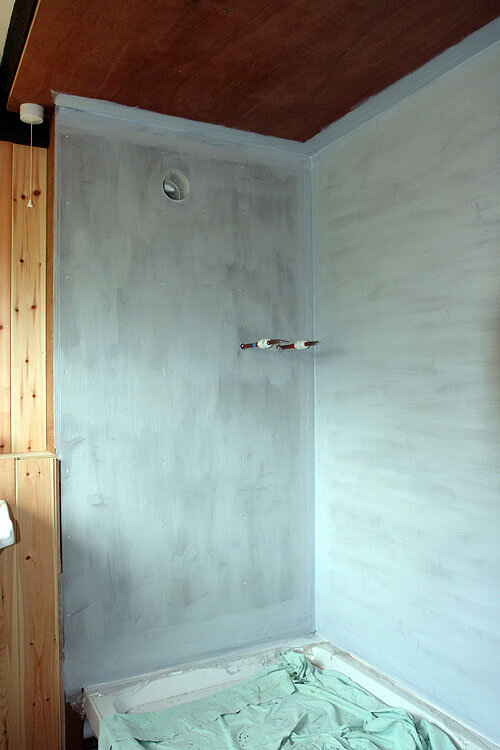
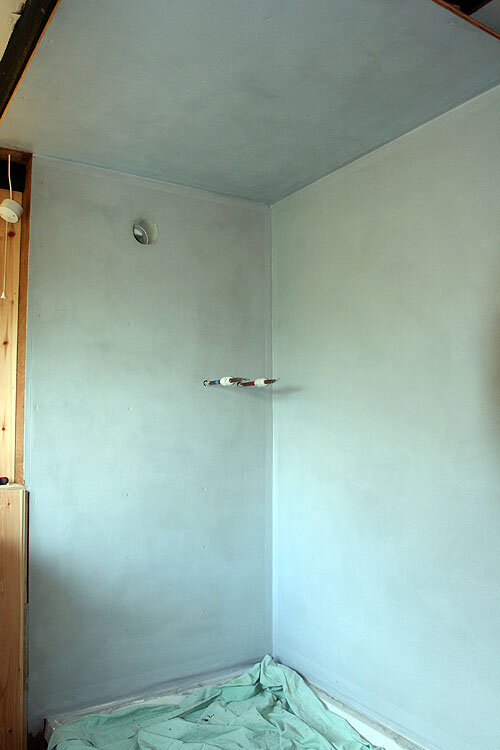
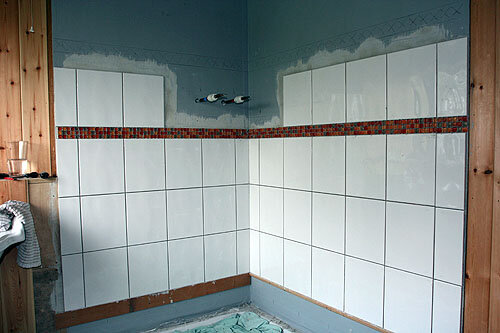
Just to recap, the walls are 18mm wbp ply on a close studded 4x2 frame and screwed at about 10-inch centres (closer around the edges). I used a Mapei waterproofing kit and applied three coats. I then fixed the tiles with Mapei Keraflex as recommended by Mapei's technical helpline.
I cut the holes using 365drills diamond holesaws. A bit expensive for a DIYer as I doubt I'll ever use them very much again, but they certainly made an easy and neat job of the holes.
I hope the pros don't fall about laughing too much . . . .






